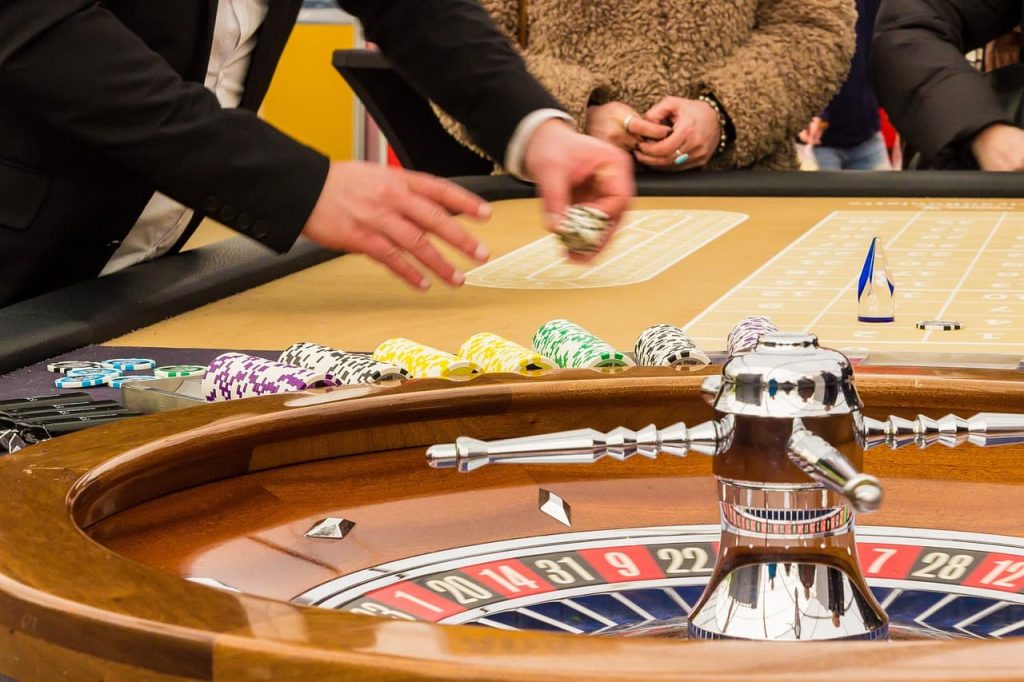How Music Sets the Mood in Casinos: A Psychological Perspective
If you’ve ever stepped into a casino, one of the first things you’ll notice, apart from the bright lights and fast-paced action, is the music. It’s an important aspect of the casino experience, and it’s frequently carefully selected to create a certain vibe. The music played in these havens of amusement can subtly (or not-so-subtly) alter our behavior, mood, and general involvement with the area. Understanding this phenomena necessitates a study of behavioral, emotional, and environmental theories. But first, examine the significance of casino reviews in establishing expectations, since they, too, contribute to our psychological preparation for the casino experience.
One place to start is by reading comprehensive casino reviews, such as the overview of Pin-Up Casino on https://expofestaseparques.com.br/casino/kto/. These reviews offer an initial glimpse into the kind of atmosphere one might expect, often mentioning the ambiance and entertainment features, which include music. Knowing what kind of environment to expect can actually have a preliminary impact on our psychological state, priming us for the experience to come. While reviews focus on various aspects such as games, bonuses, and customer service, the environmental aspects like music shouldn’t be overlooked.
The Power of Tempo and Rhythm
Tempo is a crucial factor in setting the mood. Upbeat, fast-tempo music can make people move more quickly and even spend less time deliberating on gaming decisions. On the other hand, a slow-tempo sound can induce a sense of relaxation, encouraging visitors to spend more time and, consequently, consume more food and beverages. It can also make them deliberate longer on gaming decisions, prolonging their stay at the tables or slot machines.
The Genre Matters
Different genres have unique psychological impacts. Classical music, often associated with sophistication and elegance, can make a casino appear more upscale. In contrast, pop and rock music might create a lively, youthful ambiance. Country music, with its often-relatable lyrics and melodies, could generate a more laid-back, homely atmosphere.
Psychological Tricks and Audio Landscaping
The strategic use of soundscapes or ‘audio landscaping’ involves placing different types of music in various zones within the casino. For instance, the entrance may feature high-energy, welcoming tunes, while the areas near the poker tables might have softer, more contemplative music to allow for concentration.
Key Psychological Aspects Influenced by Music in Casinos:
- Arousal Levels: Fast music can increase arousal levels, making players more excited and willing to take risks.
- Time Perception: Slow music may distort a gambler’s perception of time, making them play longer.
- Cognitive Functions: Soft, instrumental music might improve concentration and decision-making at card tables.
- Emotional Impact: The right soundtrack can either amplify joy during wins or alleviate stress during losses, affecting the overall mood and satisfaction level.
The Ethical Perspective
While the influence of music on behavior can offer a competitive edge to casino operators, there are ethical considerations. A line must be drawn between creating an engaging atmosphere and manipulating behavior to the point of promoting irresponsible gambling. The use of music to drastically alter mood and behavior in casinos walks a delicate ethical line, balancing entertainment and potential exploitation.
Certainly, diving deeper into the ethical perspective necessitates examining the concept of “informed consent.” Patrons entering a casino are generally aware that the environment is designed to encourage gaming, but they may not fully realize the extent to which elements like music can subconsciously influence their behavior. While it is the responsibility of individuals to manage their own actions, there is a broader ethical obligation for casino operators to ensure that their use of psychological cues like music doesn’t veer into manipulative territory. This is especially pertinent given the potential for gambling addiction and financial hardship. Thus, transparency about how music and other elements are used to create the atmosphere could be considered an ethical imperative, possibly implemented through signage or even digital apps that inform patrons about the sensory design of the space they are entering.

Conclusion
Understanding the psychological influence of music in casinos benefits not only casino operators but also customers. Whether you are a casual visitor or a frequent gambler, understanding how music influences your behavior is an important element of taking an intelligent approach to entertainment. The effect of music is a subtle, continuing experience that begins the moment you step into the casino, and reviews offer as a preliminary clue to what to anticipate. Music at casinos is more than simply background noise; it’s a highly organized element meant to set the tone and affect behavior in this specific setting, from pace and genre to the ingenious use of audio landscaping.
